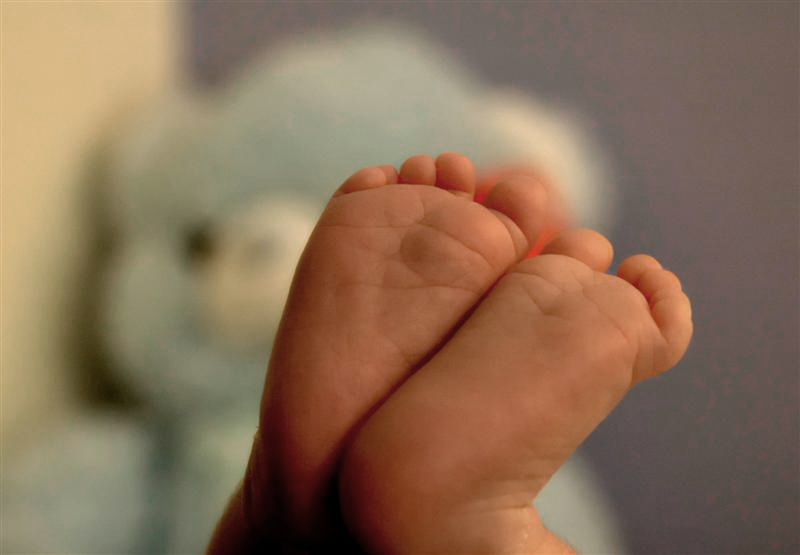Gordon Research Conference on Mammalian Reproduction: Marisa Bartolomei
As part of its mission to encourage engagement within the genetics community, PLOS Genetics is sponsoring a number of conferences and meetings this year. In order to raise awareness about these conferences and the researchers who attend them we are featuring a number of these conferences on Biologue, with posts written by the organizers or PLOS Genetics editors who are involved.
The last of these conferences is the Gordon Research Conference on Mammalian Reproduction, which takes place at Colby Sawyer College from the 10th to the 15th of August. Marisa Bartolomei, PLOS Genetics editor who will be chairing the discussion on Epigenetic Programming and Reproduction, describes the topics that will be discussed at the conference, and their relevance to everyday life.
A new Gordon Research Conference (GRC) on Mammalian Reproduction is being launched this week. This conference will continue the legacy of two previous GRCs dealing with aspects of mammalian reproduction – one on Mammalian Gametogenesis & Embryogenesis and one on Reproductive Tract Biology. Both of those GRCs ran successfully for more than 30 years but were stopped around three years ago. This new GRC on Mammalian Reproduction seeks to combine the best of the legacies of those two meetings to create a new conference focused on cutting-edge research of greatest relevance to the field of reproductive biology as it applies to mammals.

The theme of this inaugural gathering in what we hope will become another long-standing and successful GRC on reproduction is “Translating Basic Science into Clinical Applications.” To this end, sessions are focused on topics in which novel basic discoveries have lead and/or are leading to novel and effective clinical applications. The opening session will focus on “Fate Determination and Development of Reproductive Tissues,” which will feature recent discoveries into developmental origins of germ cells and somatic cells in reproductive tissues. Such insight can be used to help understand how defects in these developmental mechanisms may lead to infertility or to diseases of reproductive tissues. In addition, these developmental mechanisms can be replicated to direct differentiation of stem cells to restore these functions.
The second session will focus on “Epigenetic Programming and Reproduction.” The reproductive system – especially the germ line – is a site of extensive epigenetic programming/reprogramming during each generation. These mechanisms are responsible for proper development of each generation, and defects in these mechanisms can lead to transgenerational epigenetic inheritance resulting in heritable transmission of disease via a non-genetic paradigm. A related topic will be explored in the third session – “Stem Cells and Reproduction.” Once again, a basic understanding of the manner in which normal endogenous stem cells function in the reproductive system will provide insight into how exogenous stem cells can be used to treat reproductive defects including infertility or disease. In yet another related session – “Environmental Effects on Reproductive Functions” – the manner in which various environmental agents can disrupt normal reproductive functions will be explored. This has become a particularly active area of research in recent years and this conference will bring together experts from the reproductive biology and environmental health fields to further address key questions in this area.
In the fifth session, the conference will transition its focus to questions of women’s health and infertility and contraception. Thus, the fifth session will focus on “Pregnancy and Parturition” and will address key immunological and pathological mechanisms operating during this time. The sixth session will then be focused on “Infertility and Contraception” and will include presentations describing new information regarding molecular mechanisms that impact fertility, as well as those describing novel approaches to contraception.

The seventh session will focus on the male reproductive system and male fertility with an emphasis on mechanisms operating in the “Male Reproductive Tract.” Then in the eighth session, the focus will turn to larger scale “Genomics/Systems Biology Approaches to Reproduction.” This will include studies utilizing genomics, transcriptomics, and other high-throughput approaches to more comprehensively examine reproductive functions. Epigenetics section editor Wolf Reik will present a talk in this session describing the role of DNA modifications in signaling in epigenetic reprogramming.
The final session is entitled the “Founders’ Forum – Milestones in Reproductive Biology.” This is a special session that recognizes senior investigators in the field who have made particularly significant and extensive contributions to the field. This forum affords these individuals an opportunity to present their most recent work and to place that in a large historical context related to the particular sub-discipline under the reproduction umbrella in which they are most interested.
In addition to invited longer talks, the conference will feature a number of short talks by young investigators, from graduate students to assistant professors. There are also more than 100 posters that will be presented from Monday to Thursday afternoon. We are thrilled that over 150 people have registered to attend this inaugural Gordon Research Conference.
